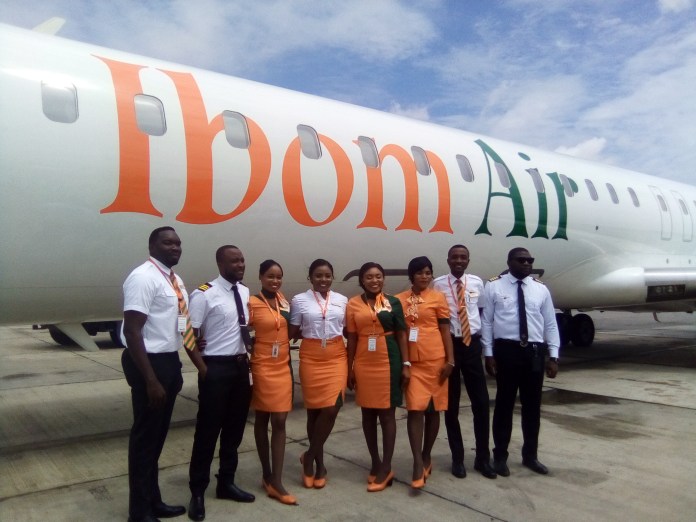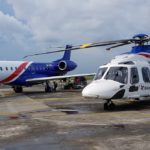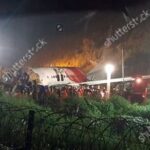
Stakeholders believe code-share among the airlines may save cost and boost revenue.
Before the restart of flight operations on July 8, 2020, some industry observers felt that passenger traffic would be low because many Nigerians are still apprehensive about flying.
But there were others who believe that there would be progressive increase in passenger traffic as people jerk off the lethargy of the lockdown to kick-start their businesses. At the time flight operations started, many businesses were still on lockdown, some on partial lockdown and generally many Nigerians were financially sapped, as savings were deployed to provide food for sit at home.
But airlines did not imagine that passenger traffic would be as low as 30-35 per cent. Some flights airlifted about eight to 15 passengers, burning fuel of about 4000 litres per hour and overall cost of N2 million per flight. That was huge loss, which airlines that were coming out of lockdown and had not earned revenue for three months could not endure.
Industry analyst and consultant, Amos Akpan, had stated that before the resumption of flights, there was sufficient indications that traffic would obviously be low when airlines resumed flight operations, noting that airline owners anticipated this low passenger traffic and they were preparing their strategies to go through the season, adding that with their strategies in place and government’s support, some airlines would go through the lean traffic season.
Codeshare/Interlining
That strategy should be collaboration through codeshare, which is an arrangement whereby airlines place their passengers going to one destination on one flight. This will save the airlines money because instead of three airlines putting three aircraft from Lagos to Abuja on Monday afternoon, for example, they would put it in one flight and save about 8000 litres of fuel and N4 million operational cost. That would be huge savings, as they share the revenue after the airline that operated the flight has deducted its costs.
Head of Communications of Dana Air, Kingsley Ezenwa, said the airline already has that working relationship with Azman Air and Max Air and it is talking with other airlines. He observed however, that it would be easy to code-share with airlines that operate from the same terminal like in Lagos where Air Peace and Arik Air operate from the General Aviation Terminal (GAT), known as Domestic Terminal 1, Murtala Muhammed International Airport, while Dana Air, Azman Air, Max Air, Aero, Ibom Air and others operate from the main domestic terminal of the airport, known as MMA2.
Ezenwa, noted that there could be a little challenge in a situation where passengers would resist flying a particular airline because of their preference for another due to in-flight service and perceived safety, but any airline approved by the Nigerian Civil Aviation Authority (NCAA) is airworthy and anyone that sure wants to get to his destination in time would not be held back by such prejudices.
“Interlining will also help the passengers because it will help to eliminate delays and flight cancellations. It will help Nigerian airlines to grow. It will also help the flying public and there will be harmony in the industry. But now competition is stiff and breeds animosity. Interlining will be key to the survival of the airlines so we need to embrace it,” Ezenwa said.
Many industry stakeholders believe that it is ego rather than philosophy and purpose of the airlines that is responsible for lack of cooperation among Nigerian carriers, but until this challenge is addressed, the report that airlines go under after sometime may continue to live with us.
The campaign for collaboration of domestic carriers has been there for a long time. Some airlines have been reluctant to participate in the collaboration plans, citing incompatible business objective and philosophy and interests and have allowed the cutthroat competition, which drains their revenues, to persist.
Threats
The current low load factor is really a threat to the existence of domestic airlines. To safe their operations, domestic operators may not have many choices but codeshare may be the key to survival.
The Chief Executive Officer of Aero Contractors, Captain Ado Sanusi told THISDAY that there is no doubt that if the low traffic continues some of the airlines would go under; unless the investors recapitalise or the expected palliatives come from government.
He added that codeshare could be a saving strategy, which airlines must adopt in order to survive, adding that airlines may not have any other choice this time.
“We are also looking at interlining to assist us boost revenue. We are already talking with Dana Air. Airlines will have no choice but to interline to save their operations. I believe it is the way forward. It is not only Arik and Aero that will run out of cash. Many airlines will run out of cash; unless investors put in money. The load factor we have now cannot even buy fuel for the airlines,” Sanusi Said.

NCAA Support
The Director General of the Nigerian Civil Aviation Authority (NCAA), Captain Musa Nuhu, however, told THISDAY that there is hope that when businesses reopen and go into full stream more people will travel by air because most travels in Nigeria is business; not leisure and currently businesses are yet to blossom after the COVID-19 lockdown.
He said NCAA would support the plan of airlines to interline because it would help them to save money and generate more revenue in their operations, as long as the interlining or code-share does not infringe on any of the regulation.
Nuhu, added that it is the prerogative of the airlines to take the decision to interline because it is a business decision that has nothing to do with economic or safety regulation; that if they were able to get it together, NCAA would support them.
“Codeshare is not bad, but it is not something we can regulate. The airlines can agree to work with each other. There is hope that passenger traffic will rebound. People are just coming out of the lockdown and there is still fear in some people that they might get infected by COVID-19. Also, businesses have not started doing so well; so there will be more people willing to travel by air when business picks up.
“This is a global problem so it is not peculiar to Nigeria; we hope that with time, as the economy improves, the load factor will go up. Globally the aviation industry is in dire straits. We are working to encourage the airlines and give them whatever support we can give them. If they do well it would also boost the revenue of NCAA. So we want the airlines to do well,” the NCAA Director-General said.
Initial Attempt
Travel expert and organiser of Akwaaba African Travel Market, Ikechu Uko, said he collaborated with the International Air Transport Association (IATA) to develop interlining programme for Nigerian airlines through the Airline Operators of Nigeria (AON), but lackluster attitude of the body and obvious lack of enthusiasm in some of the airlines frustrated the realisation of that goal.
He said it would put domestic airline in profit making pedestal in almost all their operations, while they beat down losses. It would have eliminated flight delays, cancellation and made air travellers happy because it would have promoted on-time departures.
“The major reason why some Nigerian airlines are suffering is because they are not doing interlining and this is what gave rise to constant flight delays and sometimes cancellation.
“IATA was poised to assist Nigerian carriers and it has software for a seamless partnership among the airlines. IATA wanted to serve as brokerage organisation and with the software serve as clearinghouse for everyone.
“We had two meeting with IATA, but some airlines attended and others did not.
In fact, it was the government of Ghana that showed greater interest. It wanted the system to be introduced in the West Coast. Interlining would have worked if Nigerian airlines had supported it,” he said.
The travel expert explained that all the airlines would not have to fly when they do not have full passenger load. After the peak hours they could do combined flights, where passengers billed on the tickets of different airlines would travel with one flight.
“For Example, Dana Air may offload his passengers to Max Air at 8:00 am fight from Lagos to Abuja and at 11 am Max Air may offload its passengers to Dana Air. So each airline cuts losses and makes more money. IATA wanted them to see the need of that,” he said.
Akpan had told THISDAY that operators should pull capacity per route in order to succeed.
“We must eliminate competition that is economically suicidal. Dana, Aero, Azman, Medview, Max, should approach a bank with an IT program that will make it possible for a passenger to travel on any of their aircraft with same ticket. The bank will sort out the monetary transfer to the carrier (notwithstanding the issuer). Rather than carry 50 passengers in competition, you turn your 50 passengers to another carrier, which already has 80 passengers on same route, and receive passengers from others to your destination.
“Airline management needs money from economically viable flight operations to stay safe. You make money to pay for spare parts, to fix tech snags, for checks, for salaries, for training, and to repay loans. To break even, load on B737 classics for one hour flight (point A – B) is 88 passengers at N25, 000 per seat. Each time you carry 88 passengers you’ve met the cost of that hour’s flight (no profit),” Akpan said.

Competition
Industry stakeholders agree that one of the major factors that have led to the short lifespan of Nigerian airlines is the intense competition and attendant animosity, where airlines celebrate one another’s misfortune and even blackmail one another.
Now, it is expected that airlines must work more closely and collaboratively in order to survive. THISDAY learnt that NCAA had made efforts to encourage collaboration among airlines in the past but it hadn’t worked because “some airlines were taking advantage of the others.”
Industry experts believe that flight delays and cancellation could be mitigated if airlines are working together. They explained that with such collaboration, operations to daylight airports would be easier because airlines can use one or two flights to those destinations before dusk.
Codeshare and interlining have been of immense importance to airlines globally because it has helped them to boost revenue and deeper collaboration can help them in sharing of spares. THISDAY learnt that some domestic airlines have helped one another in spares sharing, but it has not been instituted under firm collaboration, which would have guaranteed a more profitable and peaceful relationship without any residue of animosity.
THISDAY






